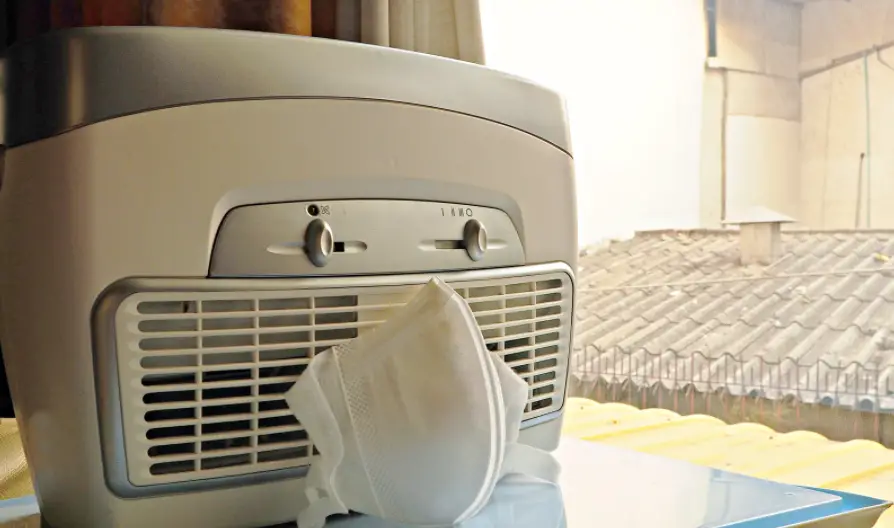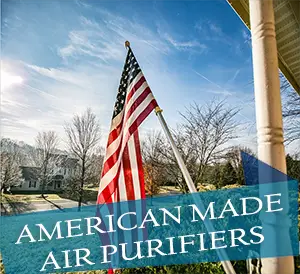
Like humans, machines will eventually wear out, but exactly how long does an air purifier last? How do you know when you will need to buy a new one? We’ll answer that and more in this article so that you’ll have an idea when to start looking for a replacement unit.
Regular cleaning plays a big role when it comes to maintaining an air purifier. Whether you have the best air purifier on a budget or a more expensive unit, it all depends on how you will use it. Aside from that, reading the user’s manual and not allowing the air purifier to run on turbo mode all the time will help conserve its motor life.
We wrote this article to help you have an idea more or less when you will need to say goodbye to your trusted anti-allergy friend. It doesn’t hurt to buy a replacement unit, so long as it matches your needs.
How Long Do Air Purifier Machines Last?
The estimated lifespan of an air purifier depends on many factors, but the average is 2 to 5 years. These factors may include the amount of air pollution that your unit takes all day, as well as the regular maintenance performed.
If your air purifier runs constantly in a big room and highly-polluted environment, expect it to last somewhere between 2 and 3 years. That’s because your motor will likely get exhausted with cleaning too much dirt and debris in the air.
On the other hand, if your air purifier isn’t used in a very dusty environment, it may last up to 5 years or more. This, of course, varies depending on how often you clean your filters and/or replace them. Always take note of the manufacturer’s instructions on when to clean or buy new filters.
Even if you have the best air purifier for the garage, it will need to be replaced eventually. Don’t feel bad – an air purifier that’s no longer efficient will do more harm than good because it will likely spew back the dust into the air!

When should I Replace My Air Purifier?
Usually, it’s the air purifier filter that gets replaced often. Regardless, if the day comes when your air purifier suddenly stops working, here are ways to tell so. The most common way to tell this is through the indicator light. You can also check the unit’s airflow if it’s working.
One way to do this is to use indoor air quality testing equipment if the air purifier is doing its job properly. If this is beyond a filter replacement and your air quality isn’t changing for the better, then it is likely time to replace your air purifier.
How Long Do Air Purifier Filters Last?
Air purifier filters vary depending on the type – roughly every 3 to 6 months for the activated carbon filter and every 12 to 18 months for HEPA filters. However, this is just an estimate – it all depends on the manufacturer’s specifications and recommendations.
One tip on helping the filters last longer is to not overwork them by running them constantly. Only running the air purifier at certain times won’t do the trick because it won’t make your air purifier eat up a huge chunk of dust in one go.
Pre-filters and permanent filters are usually both non-replaceable and should only be cleaned frequently. A pre-filter should be cleaned monthly so that it won’t accumulate dust. That’s because pre-filters are usually designed to catch the bigger dust particles that are visible to the naked eye.
There are some air purifiers with permanent filters that can be replaced if they malfunction. However, with regular cleaning at least every 3 months, they will last longer than expected.
How Often Should HEPA Filters Be Changed In A Clean Room?
HEPA filters typically last 12 months for a standard clean room but it still depends on your usage. While most air purifiers have a “filter replacement indicator” light to notify you, some units don’t. Don’t worry – there are some ways to tell if your HEPA filter needs to be changed.
First, inspect the filter. Does it have noticeable dust or gray tones all over it? That’s a good sign that it needs to be replaced. Next, check if running the air purifier doesn’t change the amount of dust, smoke, and allergens in the air. You may also experience more sneezes than usual compared to when the air purifier and the filter are both brand new.
When making your guess, it’s best to check the air purifier’s user manual. Some manufacturers put a recommendation on when to change your HEPA filter. Key in all of the physical signs and you’ll know when your filter needs to go.
Are Purifiers Worth It?
Yes, air purifiers are worth investing in for your health (and many other reasons). The most common health benefit of air purifiers is to alleviate allergy symptoms and asthma. No one likes working with their allergies acting up – especially those who use their voice in their daily work and are often talking to people (even in online meetings).
Aside from that, air purifiers take out harmful pollutants from the air, which include smoke and VOCs, which can result in respiratory problems later on. In a sense, air purifiers help prolong your lifespan so you can enjoy many more beautiful moments with your loved ones.
Air purifiers can also help you sleep better if you let them run all night long (or set them a timer). That’s because they will continuously clean the air while you snooze, lessening the likelihood of coughing and sneezing at night.
Do keep in mind that for an air purifier to function properly, you should still clean your home regularly. Moreover, as long as you keep maintaining your air purifier by cleaning and/or replacing filters when necessary, you will enjoy the benefits of filtering the air from harmful pollutants.
Conclusion
Making an air purifier last depends on how you use it. By knowing how to use an air purifier effectively, you will prolong the lifespan of your unit so that it will continuously clean air and save your budget in the long run.


